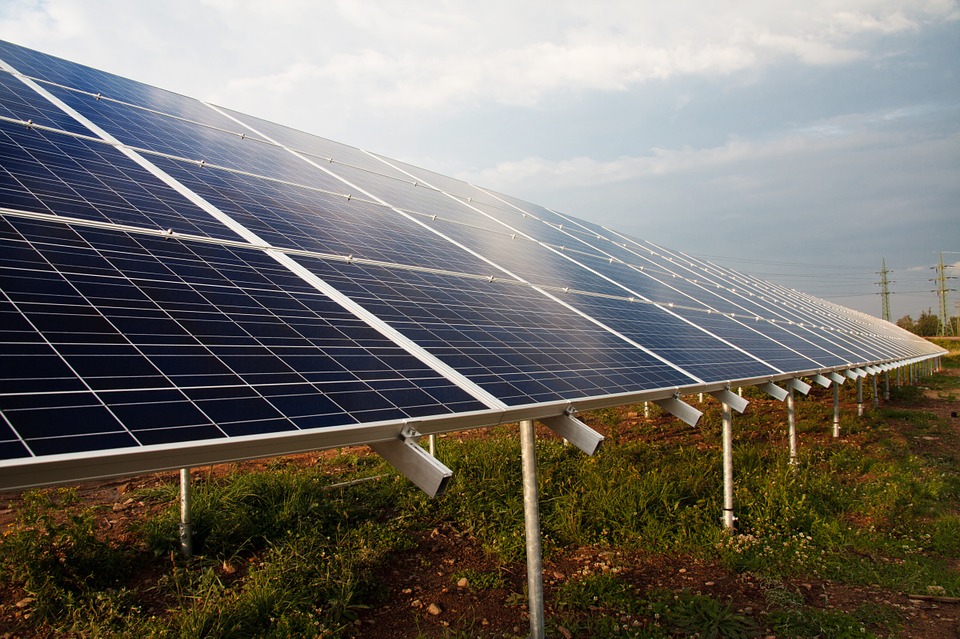CREATE Solutions
Climate, Renewable Energy, Agriculture, Technology, and Ecology (CREATE) Solutions
A collaborative initiative created as part of Tufts University’s Research and Scholarship Strategic Plan
Please visit our new website: createsolutions.tufts.edu for the latest on this initiative.

The Challenge
Three-quarters of the greenhouse-gas emissions causing climate change derive from fossil fuel extraction and combustion. Climate-related damage is already evident in its effects on ecosystems, water and food security, health, human security, and economic growth. To limit further catastrophic climate change, countries around the world have set the now familiar goal of not exceeding 2 degrees Celsius warming (ideally, 1.5 degrees C). To achieve this goal, the United States made a commitment to reduce greenhouse gas emissions by 80% by 2050. We will need to address greenhouse emissions through a combination of behavioral changes, energy efficiency, switching to cleaner fuels, and making profound changes to our energy infrastructure by expanding and modernizing the power grid while retiring half of the United States’ existing power plants and transitioning to a low-carbon energy system. Climate change is already happening and communities must find ways to adapt in the short term and build resilience in the long term to rising temperatures, sea level rise, droughts, floods, the spread of pests and vector-carrying diseases, fresh water supply stress, and more. Tufts is determined to CREATE solutions for mitigation, adaptation, and resilience in a way that leads to enduring, equitable, sustainable prosperity.

This, then, is the ideal time to bring together experts in technology, behavioral science, economics, biology, ecology, agriculture, and policy to integrate the energy research, education, and impact that will help us to avoid further catastrophic climate change and mitigate those impacts that have become unavoidable. Tufts University is well-positioned to help the United States and the world transition to a clean energy economy, advance resilient development, and educate a new generation of professionals who can create new knowledge and identify solutions to help diverse stakeholders adapt to climate change.
Solution and Innovation
To make the large-scale changes needed to address global climate change, CREATE Solutions is exploring collaborations across traditional disciplinary boundaries. These include programs that bridge students across schools at all levels and build on Tufts’ strong research programs in the policy, agriculture, biology, engineering, and economics arenas, including projects on offshore wind energy, grid integration, sustainable food systems, agriculture, and domestic and international climate policy.
This transdisciplinary group will position Tufts to host technical demonstrations that integrate climate policy expertise and encourage progress toward a common language across disciplines that address climate change. Literacy within this common language will enable tomorrow’s leaders to achieve our goals for 2050. Through its strong relationships with local, state, and federal governments; national laboratories; other research centers; and industry, particularly in the area of offshore wind, Tufts has an opportunity to act as a convener on issues critical to the low-carbon energy transition and the mitigation of existing climate-related risks.
Why Tufts?

Tufts University already has considerable strengths in research surrounding climate change, and the group has created an infrastructure to engage and strengthen the research community across Tufts. To lead these efforts, CREATE Solutions is building new leadership capacity through a Faculty Research leadership team, a Research-to-Practice leadership team, and a Leadership-in-Development team to ensure sustainability of these efforts long into the future.
The group is focused on strengthening existing centers of excellence, including the internationally-recognized Climate Policy Lab in the Center for International Environment and Resource Policy at The Fletcher School, the Tufts Offshore Wind Initiative, the renewable energy and materials faculty cluster in the School of Engineering, and the degree program in Agriculture, Food, and the Environment. Many opportunities exist to vault Tufts into a leadership position in research on achieving deep decarbonization, promoting sustainable growth, and providing education on climate, renewable energy, agriculture, technology, and ecology.
Upcoming Events
[See more on our Events page]
Monday, November 25, 2019: CIERP & CREATE Research Seminar with Zdenka Myslikova: Building energy innovation systems in Latin America: Insights from Brazil, Chile, and Mexico
12:30 pm – 1:45 pm
Crowe Room, The Fletcher School
Resources
